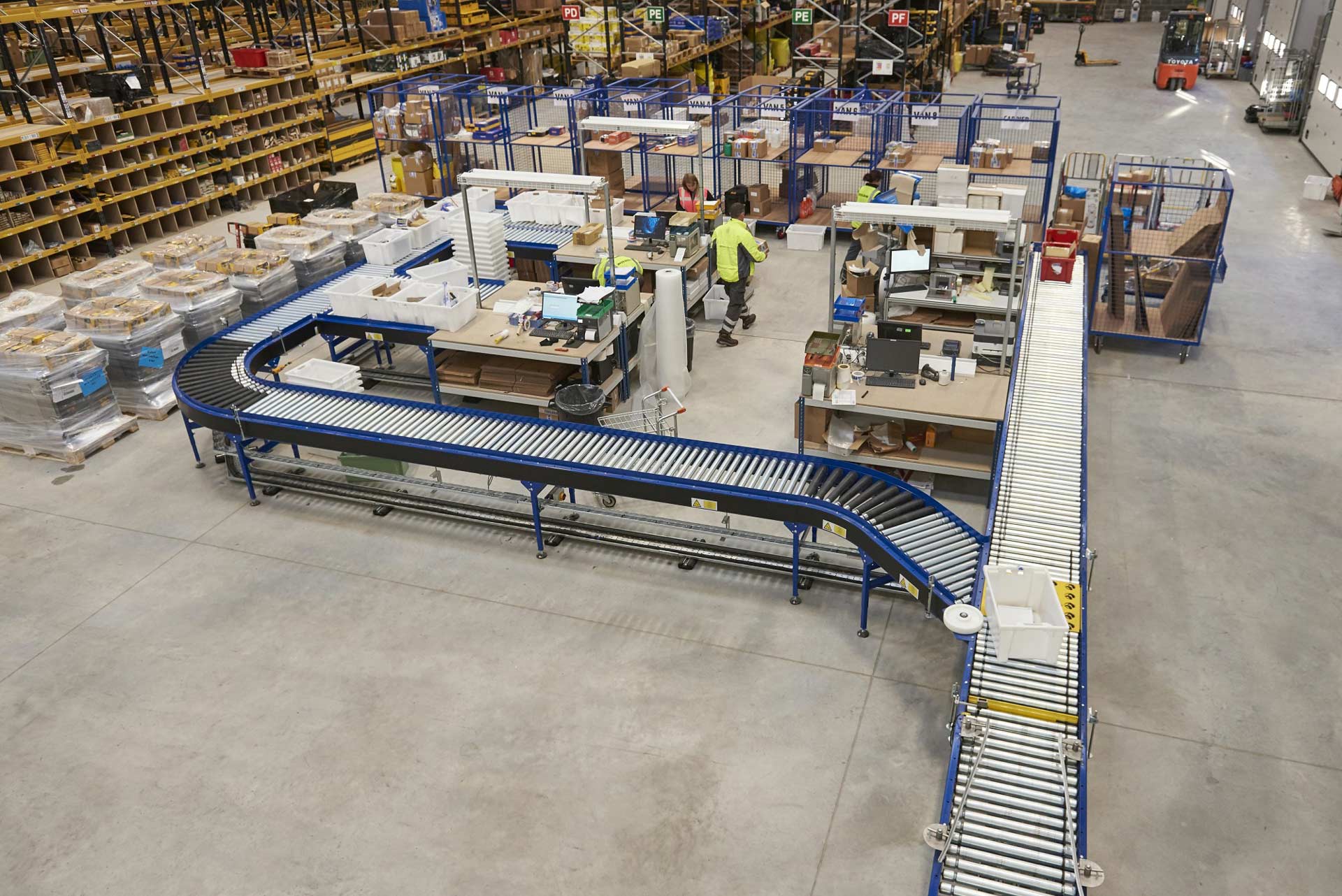In the recent UK Budget announcement, the government outlined an increase in the National Insurance (NI) contributions required from businesses, further raising employment costs across the board. For UK businesses, particularly those with large manual workforces, this change introduces a new challenge in managing operational expenses while maintaining efficiency and competitiveness.
At CSL Automation, we believe that the strategic adoption of automation solutions — such as conveyor systems, assisted order picking and automated packing machinery along with intelligent sortation systems can offer significant relief from these rising costs. By reducing the reliance on manual labour for repetitive tasks, businesses can enhance their efficiency, optimise workforce deployment, and reinvest in the growth of their strategic objectives.
At CSL Automation, we believe that the strategic adoption of automation solutions — such as conveyor systems, assisted order picking and automated packing machinery along with intelligent sortation systems can offer significant relief from these rising costs. By reducing the reliance on manual labour for repetitive tasks, businesses can enhance their efficiency, optimise workforce deployment, and reinvest in the growth of their strategic objectives.
National Insurance increase: What it means for UK employers
The government’s move to increase employer NI contributions reflects a need to address wider economic pressures, but it also translates into additional financial strain for businesses that rely heavily on manual operations. In logistics, warehousing, manufacturing, and e-commerce operations roles often focus on routine tasks like product handling, order fulfilment, manual sortation and quality checks. These are essential but resource-intensive processes that now come with an added cost of higher NI contributions.
While these roles are fundamental to day-to-day operations, they are typically labour-heavy and involve repetitive, predictable tasks that can be automated — giving companies a solution to avoid a direct increase in costs tied to these functions.
Automating manual tasks: A path to cost-efficiency and strategic growth
By implementing automated conveyor and robotics solutions, businesses can not only offset the increased NI costs but also enhance their operational efficiency. Automated systems take on high-volume, repetitive tasks such as picking, sorting, transporting, and packaging, which are currently the domain of manual labour.
With automation:
- Operational costs decrease as fewer personnel are needed for routine tasks.
- Reduced NI contributions as the total number of manual labourers decreases.
- Employee productivity increases as operatives shift their focus to strategic, value-adding roles.
- Throughputs significantly increase along with improved accuracy
For example, implementing a conveyor system that automatically sorts and transports items can significantly reduce the number of staff required to manually move products through a facility. As a result, these employees can then transition to higher-skilled roles within the company, where they contribute to strategic initiatives like quality assurance, process optimisation, and customer service.
Focusing on strategic roles: The human side of automation
It’s not just about cost savings. Automation allows businesses to develop their workforce by shifting employees from repetitive, labour-intensive roles to ones that require critical thinking, innovation, and engagement. As systems take on the repetitive tasks, staff can focus on optimising customer experiences, dealing with returns, overseeing operations etc.
This approach not only increases job satisfaction and retention but also allows for a more agile response to changes in demand or operational shifts, enabling businesses to adapt and innovate faster than ever.
Preparing for a sustainable future with CSL Automation
At CSL Automation, our expertise in designing, installing, and maintaining conveyor and automation systems can help your business adapt to the changing economic landscape and government regulations. We work closely with clients to tailor automation solutions that fit their unique operational needs, ensuring maximum efficiency and cost-effectiveness without compromising on quality.
In light of the recent changes to NI contributions, we invite UK businesses to consider how automation can be part of a sustainable, long-term strategy for growth. By partnering with CSL Automation, you can take proactive steps to streamline operations, manage costs, and keep your workforce focused on what matters most — driving innovation and value for your customers.
Contact CSL Automation
For more information on how we can assist your business with automation and conveyor systems, reach out to our expert team today.
Telephone: 01283 55 22 55
Email: [email protected]
Website: www.cslautomation.co.uk
At CSL Automation, we work with businesses to not only design and implement automation systems but also to help them understand the long-term financial benefits. By offsetting the initial cost of automation with the savings in labour, reduced complaints, lower MHE expenses, and improved efficiency, businesses can achieve faster ROI and maintain a competitive edge.
Are you ready to discover how automation can transform your operations? Contact us today at [email protected] or call 01283 55 22 55 to learn more.













